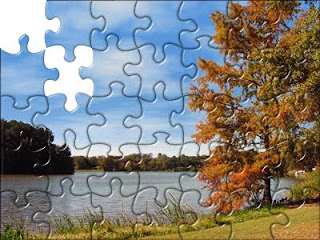If Your Have To Ask You Are Not Ready Yet
In Parshas Shemos, the Degel Machaneh Ephraim taught that a person should elevate the machshavos zaros (strange and evil thoughts) that come to him. Regarding this topic, one commenter asked how we should practically go about elevating these thoughts.
Last night, I learned a shtickel of Degel Machaneh Ephraim, Parshas Bo with the Sudilkover Rebbe that provided an answer. The Degel taught that a person must know the spiritual level he is on and conduct his avodas Hashem accordingly without attempting to perform lofty avodas above his reach. Furthermore, he should know that it is impossible to comprehend the wisdom of a higher spiritual level when he has not yet reached that level.
The Sudilkover Rebbe explained that an example of this could be a married man who is walking on the street attempting to elevate his machshavos zaros after he sees a beautiful women who was dressed less than modestly. If he had not yet attained an extremely high spirtitual level, he may fall from his current level if he attempts to elevate his thoughts of her beauty and use them as a stepping stone to contemplate the beauty Hashem has made in His creation. If, however, he recognizes his true spiritual level, he will understand that he should proceed by simply averting his eyes and pushing any thoughts about her out of his mind altogether.
The Rebbe said that advancing from level to level can be likened to a person climbing a ladder made out of wood. If a person proceeds too quickly without first testing to see whether the rung above him will hold his weight, he may fall to the ground once it snaps beneath him.
At what time then is a person ready to proceed to the next level and take on a new and higher avoda?
The Rebbe answered that a person is ready when he doesn't have to ask if he is ready or how to proceed and accomplish his new avoda. Chassidshe seforim are like a puzzle; some pieces belong to the earth and some pieces belong the sky. He must know where in the picture the piece he is now holding belongs.











11 Comments:
A related recent posting from Avakesh can be found here
Just an awesome post, as usual. Thanks.
Thanks, Jonathan. I appreciate it!
I don't understand. So the Rebbi is saying that this idea of elevating the impure thought is, in fact, not for pashuteh mentchen (like myself) and we should just look away?
But that doesn't really tell us how to deal with the thoughts once we have them. It only tells us how to avoid them.
R' Michoel,
Bekitzur:
The idea of halaaos hamachshavos is that when you get an improper machshova, the person should indulge in thinking about the origin of that though until he can transform it to the positive.
Now, should one not succeed, all he has done is continue to think about something improper. As a result, this is not recommended for the common man -- because chances are that he will not succeed.
Therefore, impure thoughts should be handled in the conventional way: push it out, and think about something else...
I just love the post and message.
Thanks, Bayta! :)
I'm surprised that no one mentioned Tanya ch. 28, which explains that this way of serving Hashem is only for Tzadikim who have no yetzer horo, but for anyone else it is will only drag them down.
Indeed. It was this chapter that caused me to bring the topic up to the Sudilkover Rebbe in the first place.
Tanya is actually one of the Chassidishe seforim that the Rebbe holds dear and learns every day.
Not all thoughts can be elevated. I saw once in the Holy Komarno's Otsar HaChaiim that the mind is like the city of refuge, and a machshava zara that can indeed be elevated is like the "accidental" killer who has a right to live there. Yet there are other thoughts that are compared to a man who killed intentionally who tries to find refuge in the city of refuge. He must be thrown out.
How can I know the difference? If after elevating the thought I feel superiority - 'gaavah" - arrogance, then it was an error, an unredeemable thought that needs to be bannished. But if after elevating the thought I feel oneness with all of God's creation and bittul, then it was the right thing to do.
I find this analogy of climbing a ladder very helpful for understanding spiritual growth.
Post a Comment
<< Home